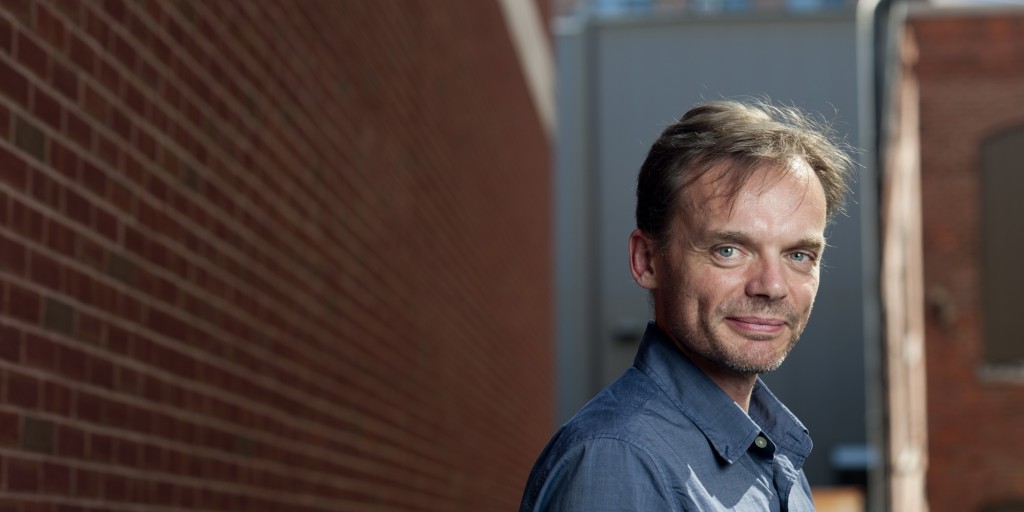by Jason Korowitz
Many people have no clue that they’re slowly going blind, says Peter Bex, a vision scientist and newly appointed psychology professor in Northeastern University’s College of Science.
“A lot of people with measurable vision impairment are unaware of their affliction because their brain fills in the missing pieces,” Bex explains, noting that one-third of the brain is devoted to visual processing. “Vision loss in one eye,” he adds, “is compensated for by the use of the other eye.”
Over the past 20 years, Bex has studied thousands of subjects in the clinical setting, many of whom have suffered from blinding eye diseases including glaucoma, amblyopia, and age-related macular disease. His clinical research employs behavioral and computational techniques to study the pathological processes behind these blinding eye diseases. His focus is on early detection, diagnosis, and monitoring of visual impairment, and his research goal, he says, is to maximize people’s remaining vision.
“I want to contribute something useful to human health and well-being,” Bex says. “When you study these diseases you realize your ability to advance new therapies is dependent on your ability to assess and modify performance.”
His work with glaucoma patients is a prime example of his research strategy. Glaucoma, a group of diseases that damage the eye’s optic nerve, afflicts some 80 million people, making it the second leading cause of blindness in the developed world. But catastrophic vision loss can often be averted if the condition is detected early. To that end, Bex has developed screening tests based on visual sensitivity to moving images that can detect early signs of glaucoma quicker than existing techniques.
He’s also making it easier for average people to gauge the true quality of their eyesight, by improving the algorithms used for eye test mobile apps. Many people unwittingly cheat on these games, Bex says, making it impossible for players to know whether their eyesight is deteriorating. “If a player’s vision is getting worse, he might use a different part of his retina,” he explains. “Unless you improve the algorithms, the player would have no idea if his eyesight was bad.”
His interest in vision science dates back to the late 1980s, when the inner workings of the brain started to pique his interest. Since then, he says, “I’ve been fascinated by how the brain works” and notes that “the eye is a unique organ that can be studied in ways that other sensory organs can not.”
Bex comes to Northeastern from Harvard Medical School, where he spent the past eight years as a professor in the Department of Ophthalmology. At the same time, he served as a scientist at the Schepens Eye Research Institute, which is affiliated with Harvard and the Massachusetts General Hospital. He earned his doctorate in vision science from Cardiff University in Wales in 1994 and then completed two post-doctoral research fellowships—the first at McGill University, the second at the University of Rochester. Following his stint in New York, Bex moved back to England in 1998 and stayed there until 2007, serving as a senior lecturer in the Department of Psychology at the University of Essex and at the Institute of Ophthalmology at University College in London.
Bex chose Northeastern for its keen focus on research that solves global challenges in health, one of the university’s three programmatic pillars. “Northeastern emphasizes healthcare and the applications of healthcare,” he says, noting that “use-inspired research is a key part of my research program.” He is particularly interested in collaborating with student researchers in his lab in addition to his new colleagues in the psychology department and the game design program. “I see opportunities in places I had not anticipated,” Bex says.
Originally published in news@Northeastern on September 4, 2014.

